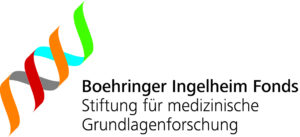About
Tick-borne encephalitis virus (TBEV) is a growing health concern in Europe and Asia. It causes severe disease that can lead to permanent neurological complications or death. Recently, the incidence of TBEV infections in endemic regions increased despite a functional vaccine being available. This makes further investigation of the pathogenesis of the virus indispensable. Exploiting host defense mechanisms against TBEV as therapeutic strategies thereby appears as a promising approach. The first line of defense against pathogenic intruders in eukaryotes is the innate immune system. Its importance, especially in the form of IFN-signaling cascades, was previously revealed also in the context of TBEV infection. IFN signaling results in the expression of a plethora of IFN-stimulated genes (ISGs), many of which are not well characterized. In this project I propose an extensive siRNA library-based screening approach aiming to assess the importance of distinct ISGs for the antiviral response against TBEV. This will be followed by an in-depth characterization of the mode of action for the ISG candidate exhibiting the most potent antiviral qualities. The identified ISG will, in the following, be investigated in the context of infections with other pathogenic members of the flavivirus family currently presenting big challenges to global health, such as Dengue and Zika virus.


